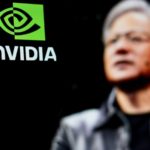Taiwan Semiconductor Manufacturing Company (TSMC) has officially denied reports of potential collaboration with Intel during an investor conference on April 17, 2025. TSMC Chairman C.C. Wei explicitly rejected speculation about forming a chipmaking joint venture with Intel in the United States, marking a definitive stance on the widely circulated rumors.
Wei emphasized that TSMC has no ongoing discussions or negotiations regarding a joint venture with Intel. The company stated it would not participate in operating Intel’s wafer fabrication business or engage in technology sharing through licensing or transfer agreements.
Earlier in April 2025, industry speculation had suggested a tentative agreement between the two semiconductor giants, with TSMC potentially acquiring a 21% stake in Intel’s US-based fabs. These reports also indicated possible investments from major American chipmakers like AMD, Broadcom, Nvidia, and Qualcomm, claims which were subsequently denied by both Nvidia and TSMC board members.
The semiconductor industry’s evolving landscape and U.S. government pressure to strengthen domestic chip production had fueled these rumors. Intel’s challenges with its IDM 2.0 manufacturing strategy and the U.S. administration’s preference for maintaining domestic control over semiconductor manufacturing added credibility to the speculation.
TSMC’s denial coincides with its recent expansion plans in the United States. In March 2025, the company announced a substantial $100 billion investment in Arizona, encompassing three new advanced wafer fabs, two integrated circuit assembly plants, and a research facility. This commitment brings TSMC’s total Arizona investment to $165 billion, demonstrating its independent approach to U.S. market growth.
Industry analysts suggest TSMC’s stance reflects its strategy to maintain operational independence and protect its technological advantages. The company’s focus remains on organic growth in the U.S. market rather than collaborative ventures that might compromise its competitive edge.
The semiconductor market continues to be shaped by geopolitical factors, particularly U.S.-China trade tensions and supply chain security concerns. TSMC’s expansion in the U.S., coupled with its clear position against joint ventures, indicates a commitment to independent growth and technology protection in this competitive landscape.
News Source: CNBC


